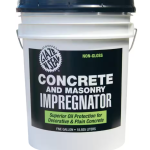Pebbles, those small, smooth stones you often find at the beach or in gardens, have a fascinating story to tell. In this article, we will dive into the world of pebbles, unraveling their types, characteristics, and most importantly, their role in landscaping. So, let’s get started!
What Are Pebbles?
Pebbles are small, rounded, and typically smooth stones that are smaller than cobbles but larger than sand grains. They are often found near bodies of water, like rivers, oceans, and even lakes. These tiny treasures have been shaped over time by the constant motion of water, which gives them their distinctive smoothness.
Types of Pebble Stones
Pebbles come in various types, each with its unique charm. Some common types of pebble stones include:
- River Pebbles: These are the pebbles found along riverbanks. They come in a variety of colors and are known for their smooth, rounded shapes.
- Beach Pebbles: Beach pebbles are found along shorelines and are typically polished by the constant action of waves. They come in an array of colors, from white and gray to more exotic shades like turquoise.
- Decorative Pebbles: These pebbles are often artificially colored or shaped for landscaping purposes. They are available in a wide range of colors and sizes, making them perfect for creative landscaping projects.
What Type of Rocks Are Pebbles?
Pebbles are made up of various types of rocks, depending on their origin. Common rocks that can become pebbles include granite, limestone, basalt, sandstone, and quartz.
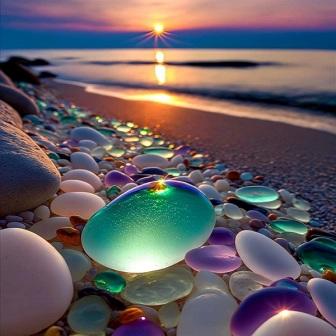
The exact rock type determines the color and texture of the pebble. Let us see what sands and pebbles deposited by a river are called!
What we call Sand and Pebbles Deposited by a River
When a river carries sediment, including sand and pebbles, and deposits it in a different location, the resulting material is often called “alluvium.” This term encompasses both sand and pebbles and is a vital part of river ecosystems.
It contributes to the formation of riverbanks and provides habitat for various aquatic organisms.
What are Physical Characteristics of Pebbles
Pebbles have distinct physical characteristics that make them stand out:
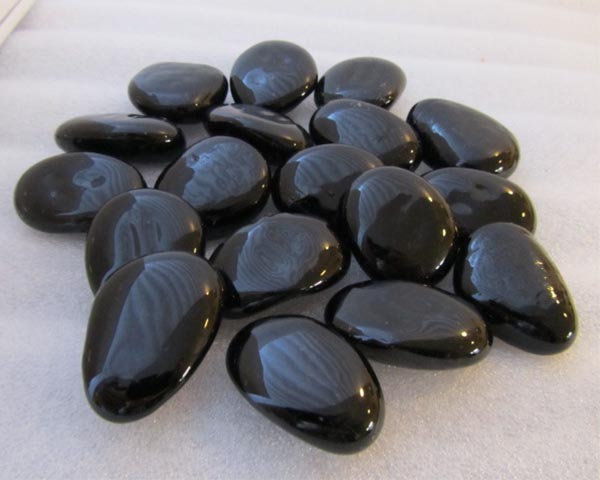
- Smoothness: One of the defining features of pebbles is their smooth, polished surface. This smoothness is the result of the constant abrasion they undergo in rivers or along coastlines.
- Varied Colors: Pebbles come in a spectrum of colors, from earthy browns and grays to vibrant reds, blues, and greens, making them visually appealing.
Because pebbles are round, having amazingly beautiful colors, they’re often used in Landscaping. So let us see what landscaping pebbles are and the various reasons why they’re considered suitable for landscaping below!
What are Landscaping Pebbles
Landscaping pebbles, also known as decorative pebbles or garden pebbles, are pebbles specifically chosen and prepared for use in landscaping projects.
They are used to enhance the aesthetic appeal of gardens, pathways, and outdoor spaces.
Importance of Pebbles in Landscaping
Lets consider the various importance of pebbles in landscaping. Truth is outdoor places with pebbles are often serene and beautiful!
Landscaping pebbles have several advantages:
- Aesthetic Appeal: Pebbles can transform a plain garden or outdoor space into a visually stunning landscape. Their diverse colors and textures add depth and character to the design.
- Low Maintenance: Unlike grass or other ground coverings, pebbles require minimal maintenance. They don’t need mowing or watering, making them an eco-friendly landscaping option.
- Erosion Control: Pebbles can help prevent soil erosion by acting as a barrier between heavy rainfall and the ground. This is especially useful in hilly or sloped areas.
Best Pebble Colors for Landscaping
Knowing the best and most appreciated pebble colors in landscaping is very important for those in that aspect of business!
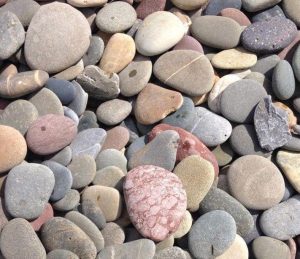
The most suitable color for landscaping pebbles depends on the overall aesthetic of your landscape, as well as the other colors and textures present in your outdoor space. However, some popular colors for landscaping pebbles include:
- White: White pebbles can help to brighten up your landscape and create a sense of spaciousness. They can also be used to create a clean and modern look.
- Black: Black pebbles can add a touch of elegance and sophistication to your landscape. They can also be used to create a dramatic contrast with other colors in your outdoor space.
- Gray: Gray pebbles are a versatile color that can be used to create a variety of looks. They can be used to create a natural and rustic look, or a more modern and minimalist look.
- Brown: Brown pebbles are a good choice for creating a natural and organic look in your landscape. They can also be used to create a warm and inviting atmosphere.
- Red: Red pebbles can add a pop of color to your landscape and create a sense of excitement. They can also be used to create a warm and inviting atmosphere.
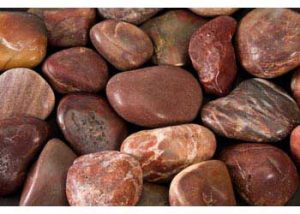
Ultimately, the best color for landscaping pebbles is the color that you like the most and that best complements the overall aesthetic of your landscape.
Why Does Pebble Color Matter in Landscaping?
Here are some tips for choosing the right color of landscaping pebbles:
Consider the other colors and textures present in your outdoor space. Choose a color that will complement the existing colors and textures, or create a contrast if that is the desired effect.
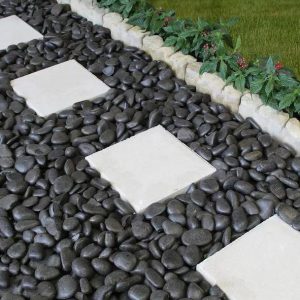
Think about the overall aesthetic you want to create in your landscape. Do you want a natural and organic look, or a more modern and minimalist look? Choose a color that will help to achieve your desired aesthetic.
If you are unsure which color to choose, ask a landscape designer for help. They can help you to choose the right color for your landscape and your personal preferences.
Where to Find Landscaping White Pebbles
White landscaping pebbles can be found at garden centers, home improvement stores, or even online. You can also explore local stone yards and landscaping suppliers.
When choosing pebbles for your landscaping project, consider factors such as size, color, and texture to achieve the desired look.
Advantages of Pebbles in Landscaping
One significant advantage of using pebbles in landscaping is that they:
1. Enhance Aesthetics: White pebbles, for instance, can brighten up a garden and create a clean, serene atmosphere. They provide a timeless and elegant look to any landscape design.
Pebbles are versatile and can be used in a variety of applications.
A Pebble is relatively inexpensive and easy to install.
Sometimes, pebbles needs just low-maintenance.
Pebbles are durable.
They are highly attractive, especially the white and black colored pebbles!
Why are Pebbles considered most Suitable for Landscaping but less suitable for Construction
While pebbles have their place in landscaping, they are not suitable for construction projects. Here’s why:
- Lack of Structural Strength: Pebbles are small and lack the structural strength needed for construction purposes. They cannot bear heavy loads or provide stability in building foundations.
- Inconsistent Size and Shape: Pebbles come in various sizes and shapes, making them unsuitable for uniform construction applications where precision and consistency are essential.
Final Thoughts on Pebbles
In conclusion, pebbles are nature’s small wonders, each with a unique story to tell. They find their true calling in landscaping, where their beauty and low-maintenance qualities shine, transforming ordinary outdoor spaces into picturesque landscapes.
While they may not be fit for construction, their role in enhancing our outdoor environments is undeniable.
So, the next time you stumble upon a pebble, remember the beauty it holds and the transformations it can bring to your garden or outdoor haven.



